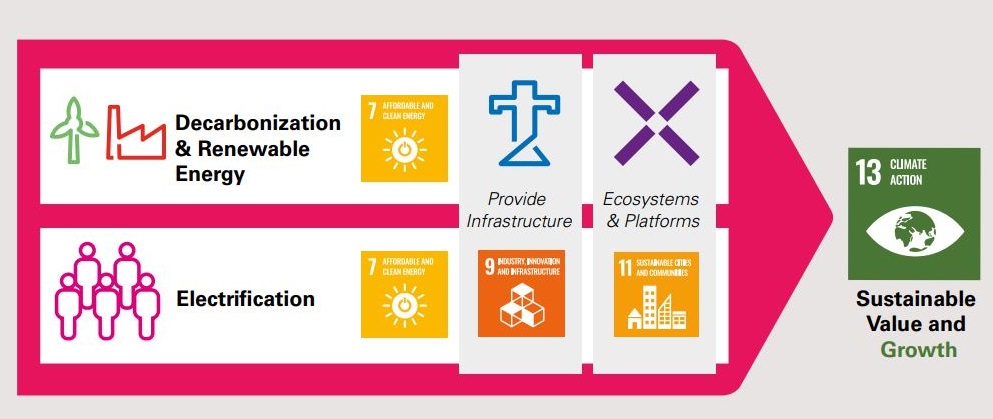Decarbonization is one of the fundamental pillars of Enel Chile’s strategy, followed by renewable energy development and expansion, electrification, and infrastructure and platform development. Within this framework, the Company’s business is focused on reaching the U.N.’s Sustainable Development Goals (SDGs).

Our commitment to decarbonization and an increasingly cleaner energy matrix was reflected in the historic decarbonization agreement signed in 2019, in which we committed to retire the Tarapacá, Bocamina I and Bocamina II power plants. Reinforcing such commitment, we voluntarily requested the early retirement of the Tarapacá power plant, which was completed on December 31, 2019. Additionally, we were authorized by the National Energy Commission (CNE) to anticipate the final withdrawal, disconnection and termination of the operation of the Bocamina I (128 MW) and Bocamina II (350 MW) power plants on December 31, 2020 and May 2022 respectively. These milestones were initially planned for the years 2023 and 2040, respectively.
Therefore, Enel Chile will be the first company in the country to stop generating based on coal by 2022.
As a result of the decarbonization strategy, the Company announced a new sustainable strategic plan in December 2019, which increases renewable energy capacity by approximately 2 GW by 2022. As a result, the Company’s installed capacity will increase by 21%, to a total 8.7 GW in 2022, and will consolidate the portion of renewable energy sources in its energy matrix.
Guaranteeing and accelerating the electrification process, resilience, and electrical network availability are crucial aspects of the energy distribution business. Therefore, Enel Chile’s main objective is to continue improving service quality and efficiency to meet customers’ needs, which will also allow for the integration of new services. Over the last 3 years, Enel Chile has almost doubled the number of remote-controlled devices in its network. This technology, along with process improvements, has reduced the duration of service interruptions. The Company will continue its network modernization and digitalization process to further improve the service it provides and enable the connection of new clients and real estate projects.
The energy transition process is affecting all aspects of the value chain and is generating substantial value-creating opportunities for those who can operate with the required scale and flexibility. Within this new context, Enel X, Enel Chile’s services subsidiary, is a fundamental figure in our clients’ energy transition, for promoting more environmentally friendly sources of electric heating for example as opposed to inefficient, high-carbon thermal heating such as firewood. In addition, and through an alliance with Metbus, Enel X introduced electric buses into Chile’s public transport system in 2018 and 2019, reaching a total of 285 electric buses in Santiago. They have replaced conventional, combustion-based buses, and have therefore helped reduce these carbon emissions. Therefore, Enel X will continue to contribute and support the increased demand for value added services driven by the trend towards electrification, the concern for more efficient and less polluting consumption, and electromobility.
You can find here the Strategic Plans Presentations.

